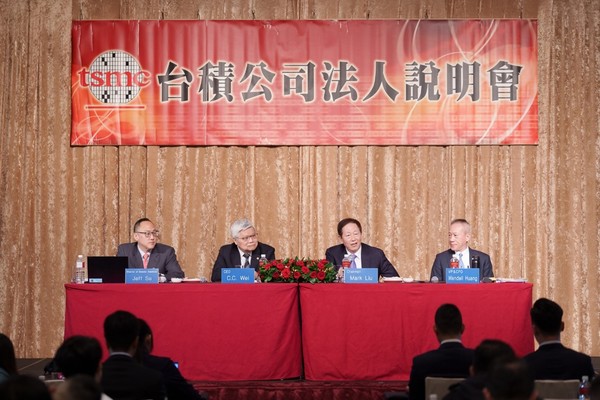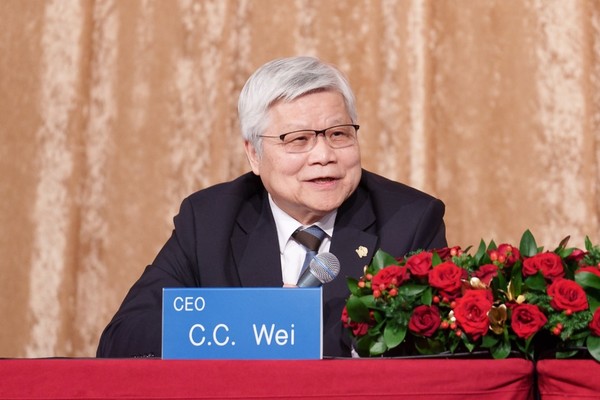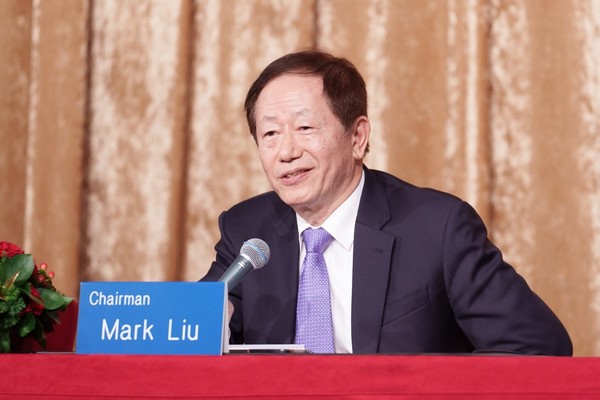
[애플경제 Adela Lin 대만특파원]
Taiwan Semiconductor Manufacturing Co. (TSMC 台灣積體電路製造股份有限公司), the world’s largest contract maker of semiconductors, forecast company’s revenue growth to surpass that of the industry this year, with a stable capex plan to back its capacity expansion worldwide.
“We expect 2024 to be a healthy growth year for TSMC,” Chief Executive Officer C.C. Wei (總裁魏哲家), told investors at a quarterly briefing on Jan. 18, citing its 3-nanometer process technology and strong demand for 5-nm technology as well as robust artificial intelligence-related demand.
Wei estimated the overall semiconductor market excluding memory integrated circuits to increase by more than 10% this year, while global foundry industry growth is forecast to be approximately 20%. Company revenue for 2024 should increase in the “low to mid-20 percent” range in U.S. dollar terms, he said. TSMC, supplier to Apple Inc. and Nvidia Corp., posted a drop of 8.7% in net revenue to US$69.3 billion last year.
TSMC Chief Financial Officer Wendell Huang (財務長黃仁昭) projected company sales to range between US$18.0 billion and 18.8 billion in the first quarter this year, with gross margin at 52%-54%. The chipmaker posted net revenue of US$19.62 billion and gross margin of 53.0% in the last quarter of 2023.

It budgeted capital expenditure of US$28 billion-US$32 billion for this year to support customers’ needs, the CFO said. TSMC’s capex totaled at US$30.45 billion in 2023.
TSMC Chairman Mark Liu (董事長劉德音) said his company is increasing capacity at home and overseas. The plant in Arizona, U.S. is on track for volume production of 4-nanometer process technology in the first half of 2025.
The plant in Japan will hold an opening ceremony on Feb. 24 and volume production is seen in the fourth quarter of this year.
The construction for the plant in Germany is schedule to begin in the last quarter of this year. TSMC is also expanding capacity for 3-nm process technology and 2-nm technology in Taiwan.
Chairman Liu last month announced a decision to retire from the company after the 2024 Annual Shareholders Meeting. TSMC’s Nominating, Corporate Governance and Sustainability Committee of the board recommends C.C. Wei succeed as the company’s next Chairman, subject to the election of the incoming board in June this year. Liu joined TSMC in 1993 and assumed the role of chairman after Founder Morris Chang’s retirement since June 2018.
Separately, TSMC has joined Industrial Technology Research Institute (ITRI 工業技術研究院) for pioneering research into the development of a spin-orbit-torque magnetic random-access memory (SOT-MRAM) array chip. This SOT-MRAM array chip showcases an innovative computing in memory architecture and boasts a power consumption of merely one percent of a spin-transfer torque magnetic random-access memory (STT-MRAM) product, according to ITRI statement on Jan. 17.
Chang Shih-chieh, General Director of Electronic and Optoelectronic System Research Laboratories at ITRI (工研院電子與光電系統所所長張世杰), said: “This technology holds the potential for applications in high-performance computing (HPC), artificial intelligence (AI), automotive chips, and more.” ITRI is a Taiwan-based applied technology research institute.
SEMI (國際半導體產業協會) earlier this month forecast global semiconductor capacity to increase 6.4% this year to top the 30 million wafers per month (wpm) mark, driven by capacity increases in leading-edge logic and foundry, applications including generative AI and high-performance computing (HPC), and the recovery in end-demand for chips.
China is expected to lead the expansion on the back of 13% year-on-year capacity growth to 8.6 million wpm, according to SEMI’s latest quarterly World Fab Forecast report.

Taiwan is projected to remain the second-largest region in semiconductor capacity, posting 4.2% growth to 5.7 million wpm in 2024. Korea ranks third in chip capacity at 5.1 million wpm in 2024, a 5.4% increase as one fab comes online. SEMI is a global industry association connecting over 3,000 member companies and 1.5 million professionals worldwide across the semiconductor and electronics design and manufacturing supply chain.

